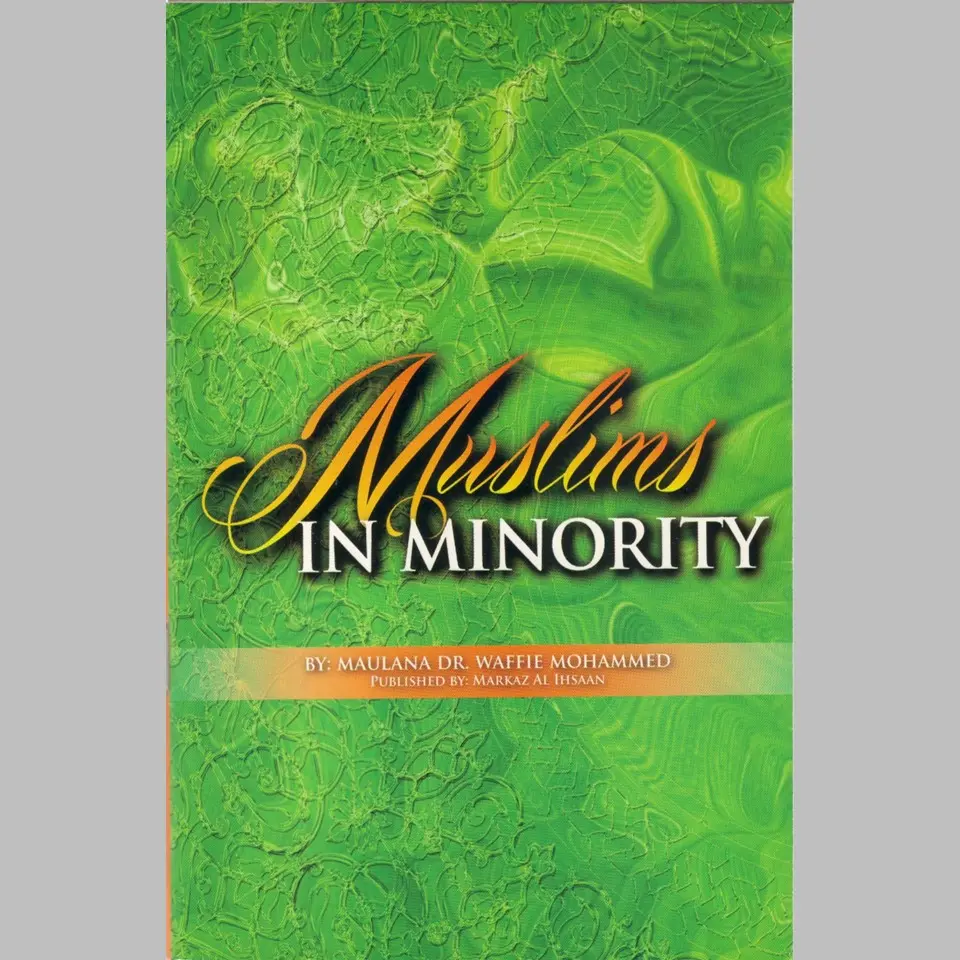Muslims in Minority
Maulana Dr. Waffie Mohammed
As part of the Divine Plan, some Muslims find themselves living in isolation, as believers in the Oneness of Allah, in a larger society comprising, Mushriks (idolaters) and Kaafirs (rejecters of belief in the Oneness of Allah—the one true God).
Such a position can be a blessing, if the person or persons, are learned in Islam, possess sound moral personalities and are inclined to enjoin righteousness and avoid those things that are prohibited in Islam.
Allah wants believers to go out in the land and present the Message of Truth to one and all i.e. to go out and give the Dawah. This principle has been inherited from all the Messengers who were sent to every tribe and nation. For example, Allah ordered Moses to go and give Pharaoh thذe Message. He said:
Go to Pharaoh. Verily, he has transgressed (all bounds in disbelief and disobedience and behaved as an arrogant and as a tyrant). And speak to him mildly, perhaps he may accept admonition or fear Allah. (20:43-44).
This presentation aims at discussing the experiences of such a believer who happens to be living, either temporarily or permanently, amongst the non-Muslims.
Theologically, Muslims living as a minority community are said to be in a state of Daarul Harb. (in a state of war). This is because Muslims living in a non Muslim environment will experience conflict of culture and opposition to preaching and practicing of Islam.
Perhaps, this is one of the reasons why Allah says in the Holy Qur’an the following: We shall constantly try you, until We know those of you who are prepared to defend the Faith and those of you who are prepared to persevere with patience. (47:31)
Today, whether the Muslims live as the majority of citizens in a country, or as minorities in other parts of the world, they are all now part of the global village. And no matter how much the authorities in the Islamic countries may try to implement Islamic moral values and culture, the modern means of communication and cultural values of different peoples are spreading, and are being accessed even by Muslim youths, etc. through the Internet, Face book, etc...
The Muslims living as a minority group must always take the responsibility to give the Dawah, either through their own lifestyle or as a group, and Allah will bless them for doing so.
They must also familiarize themselves with the challenges of their believing brothers and sisters who are isolated as a minority group and who may time may need some form of assistance in order to be able to establish themselves as an admirable minority group; and in order to be able to completely satisfy peoples’ curiosity about Islam, and answer question.
